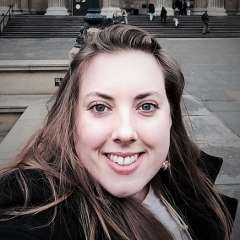The BBC Concert Orchestra and Barry Wordsworth were joined by Stile Antico, Jack Liebeck and Christine Rice in an exploration of the musical mind of fictional detective Sherlock Holmes. Following the success of recent BBC drama, Sherlock, expectations ran high. Sadly, the talent and style of the BBC Concert Orchestra and Barry Wordsworth were diminished by the poor programming of this Prom. Glimmers of hope were interspersed throughout this matinée performance thanks to soloists Christine Rice and Jack Liebeck. The orchestra was only truly given a chance to shine in David Arnold and Michael Price’s Sherlock Suite as a grand finale. Was this Prom meant as a dignified yet emotionless realization of Holmes himself?
Opening with Hans Zimmer was a failsafe ploy to get the audience onside and played to the strengths of the BBC Concert Orchestra, which generally excels at scores for the big (or small) screen that include percussion and lots of brass. Discombobulate created a certain air of mystery and suspense before this longed for duo floated away to enjoy Hyde Park for the afternoon. Aside from a few timing issues, the orchestra played accurately.
BBC Radio 3’s Matthew Sweet and Sherlock co-creator Mark Gatiss provided an insightful commentary on the relation between musical items and Sherlock’s life, peers and musical taste. Stile Antico performed two contrasting motets with clarity and movement, all the while savouring the Italian texts and supporting facial expressions which implied the group were thoroughly enjoying performing for the deerstalker-clad audience. Voices came together seamlessly and individual parts were brought out intelligently. The group were then rushed off stage to make way for Baker Street Reunion which, judging from the dragging pace and delicate aspects of the music, must have been poorly attended with some ripe excuses to be excused early. Despite the lyrical and breezy violin solo by Jack Liebeck, whose harmonics were sweet and gentle, the piece failed to go in any direction.
Christine Rice portrayed Irene Adler with dignity and grace. Rice brought to the stage expressive gestures and a strong, wholesome resonance which extended across her entire vocal range. The mezzo-soprano was entirely committed to her performance and navigated demanding passages in the Rossini with finesse. A change of tone, Rice took to Olga's arioso from Eugene Onegin with a sure approach, commanding the stage.
There was constant musical and pictorial referral to various incarnations of the Holmes of yesteryear, dating back to the 1940s, on screens around the Royal Albert Hall with Gatiss reciting from The Voice of Terror in period dress. With the BBC’s Sherlock as the most recent portrayal in the eyes of the 21st Century’s CumberCollective, the ratio of old to modern was unbefitting of Sherlock's current following.
The selection of pieces marginally improved after the interval and Liebeck performed Paganini’s La campanella with great skill. This energizing performance was followed by Wagner’s The Ride of the Valkyries. Horns were doubled and the venue became animated with the prospect of hearing this famous work performed live. However, despite a voluminous orchestra, the rendition did not evoke power. It was merely loud.
The concert concluded with the Sherlock Suite. The BBC Concert Orchestra found its stride with some intricate musical features, such as a ballpoint pen being dropped onto the bridge of a mandolin, pretty interchanges between the woodwind and strings and bringing out of the reverberating Sherlock leitmotif. The percussion section was in full force and the brass section charmingly held their own. The strings played dutifully with meaningful solos from leader Charles Mutter and the principal cellist, conveying the mournfulness of Sherlock’s condition, yet at the same time, the protagonist's constant alertness with an ever pounding timpani heartbeat. The final movement was madness, yet under the stern baton of Wordsworth, the concert ended well.




